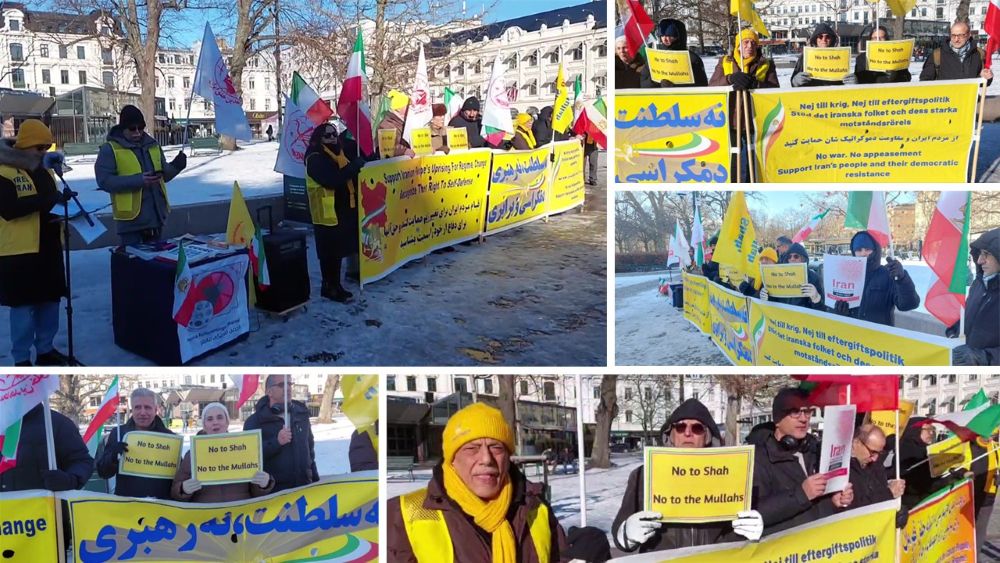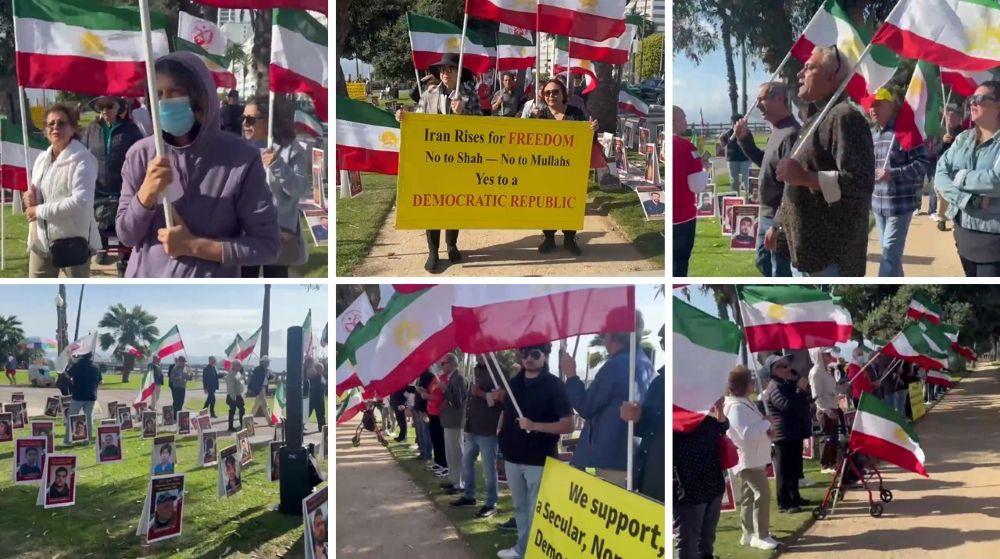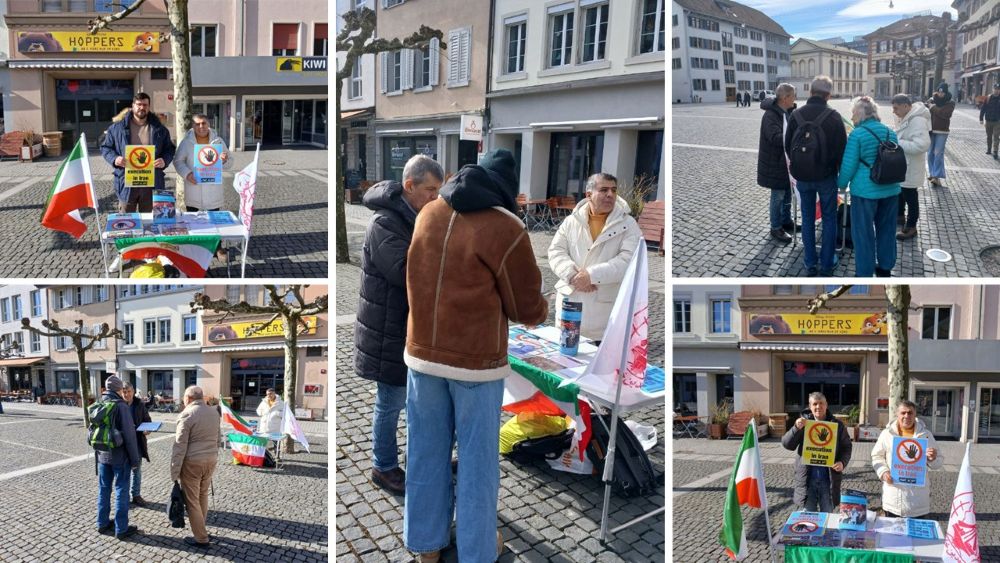On Monday, August 2, 2021, Iranian American activists held a demonstration in Washington, D.C. with support from US lawmakers and policy experts, which called attention to the persistent lack of accountability for a major crime against humanity that took place in the Islamic Republic 33 years ago.
The rally and exhibition were held to head off the week of Iran’s regime presidential inauguration.
Similar events were held across Europe on Tuesday, August 3, with similar support from lawmakers who share the Iranian community’s outrage at the appointment of Ebrahim Raisi as the regime’s new president.
In 1988, Raisi was serving as deputy public prosecutor in Tehran. That summer, he took on a leading role in the “death commission” that was convened in the nation’s capital in response to a fatwa from the regime’s founder, Ruhollah Khomeini. The religious edict declared that organized opposition to the regime’s religious fascism was an act of enmity against God, and it took particular aim at the People’s Mojahedin Organization of Iran (PMOI/MEK), which then as now was the leading voice for a democratic alternative.
The Tehran death commission, together with similar panels all across the country, was tasked with interrogating known PMOI/MEK affiliates, as well as other political prisoners, to determine whether they remained disloyal to the ruling system. Those who professed commitment to democracy or merely resisted the idea of walking through landmines in service of the war against Iraq were typically sentenced to be hanged, and at the height of the ensuing massacre, hundreds of those sentences were carried out each day. Victims were buried in secret mass graves.
Eyewitnesses to the Tehran death commission tend to report that Raisi was particularly eager to fill the role with hanging judge and that he pronounced capital sentences casually, without a hint of remorse, often following interrogations that lasted as little as two minutes. Furthermore, documents from the time indicate that Khomeini so trusted him to handle political dissidents without mercy that his jurisdiction was expanded beyond Tehran “to deal with reports from Semnan, Sirjan, Islamabad and Doroud cities,” and to compensate for the perceived “weakness of the judiciary.”
This was only the first of many examples of Raisi and other officials being rewarded for their active participation in the 1988 massacre. His June 18 “election” to the presidency demonstrates that such rewards continue to accrue to this day. His prior appointment as head of the judiciary also underscores the fact that many such rewards specifically serve to give those human rights abusers opportunities to compound their legacy by overseeing further crackdowns on dissent and further instances of capital punishment.
Raisi took full advantage of that opportunity as judiciary chief, playing a major role in the government’s response to a nationwide uprising in November 2019. At least 12,000 people were arrested in connection with that uprising, and many of them were tortured in the regime’s jails for months afterward. Worse still, approximately 1,500 peaceful protesters were fatally within days of the uprising beginning. It was a chilling reminder of the regime’s persistent indifference to human life and the basic rights of its citizens, though it paled in comparison to the 1988 massacre, which has been described as the “worst crime of the Islamic Republic” and one of the worst crimes against humanity to take place anywhere in the world during the late 20th century.
It is estimated that 30,000 political prisoners, mostly members of the PMOI, were killed during over the course of about three months that year. The exact scale of the killing and the identities of all the victims may never be known, however, because Iranian authorities have taken measures to destroy the grave sites and to criminalize domestic protests and memorials over the years. Such actions are a clear expression of the regime’s expectation of impunity – an expectation that has unfortunately been reinforced by appeasement policies and refusals to launch a formal, international investigation into the 1988 massacre and the role of current Iranian officials.
Raisi’s ascension to the presidency is yet another expression of that impunity, and perhaps the most blatant so far. It comes in the wake of an “election” in which he was the only viable candidate, explicitly backed by Supreme Leader Ali Khamenei, who wields ultimate authority over all matters of state. By some accounts, more than 90 percent of eligible Iranian voters boycotted that election in protest, but Tehran will no doubt continue to treat Raisi as a legitimate occupant of the presidential office unless, perhaps, the international community join the Iranian people and the Iranian expatriate community in rejecting that legitimacy and urging consequences for Raisi’s crimes against humanity.
There is certainly support for that course of action, as evidenced by the presence of Western lawmakers from diverse political parties in this week’s protest rallies. However, there also remains a great deal of resistance to such assertiveness, which leaves open the possibility that European governments and the United Nations will welcome a known human rights violator on state visits as a supposed representative of the Iranian people.
Mrs. Maryam Rajavi, the president-elect of the National Council of Resistance of Iran (NCRI), formalized this appeal in a video message to the Washington rally. “On behalf of Iranian people and Resistance,” she said, “I call on the United Nations and the international community to recognize the 1988 massacre in Iran as genocide and a crime against humanity.”
Rajavi went on to note that Raisi’s presidential appointment highlights the failure of Western policies of “engagement and appeasement,” and reinforces the notion that the clerical regime “will never abandon its project to obtain nuclear bomb, to export terrorism and to expand warmongering in the region.” The NCRI’s position has always been that these malign activities will only end with the collapse of the existing regime, and it has lately insisted that this outcome is well within reach.
Since the end of 2017, the Mullahs’ regime has undergone a series of nationwide uprisings, and as Raisi prepares to take over the presidency it is arguably in the midst of another. Protests over water shortages in the province of Khuzestan have expanded to encompass at least 16 other provinces and have also assumed anti-government messaging similar to that which defined the uprisings in January 2018 and November 2019. The recent and ongoing promotion of human rights abusers is no doubt part of a strategy to accelerate crackdowns on dissent, but as Mrs. Rajavi sees it, these same measures are expressions of desperation and a sign that “the mullahs’ regime is at its weakest point.”
That is a weakness that the international community can effectively exploit by simply isolating the new Iran’s regime administration and making it clear once and for all that the Mullahs’ era of impunity is over and that there will be serious consequences for further violence against a population that is calling out for freedom and democracy.



